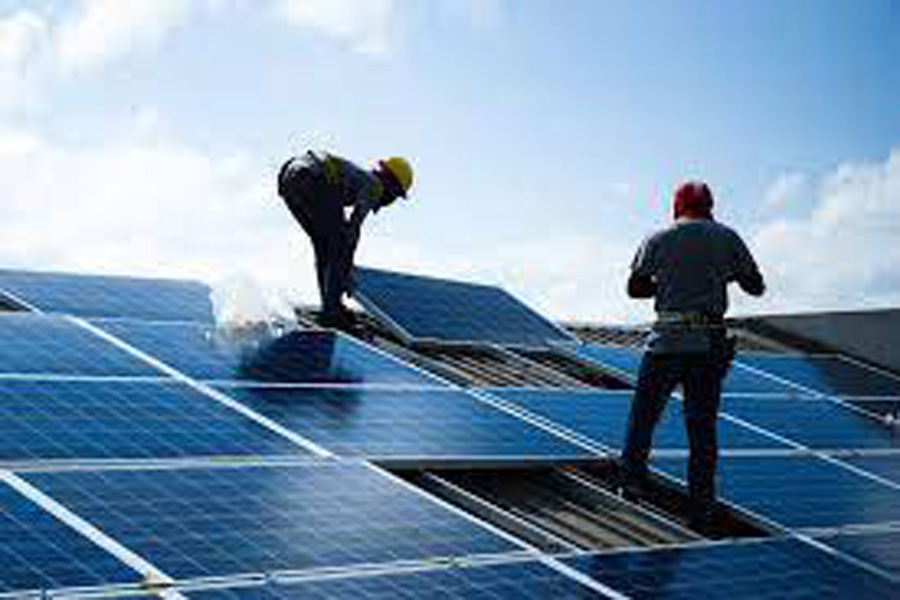The benefits of solar panel installation are numerous. They include reduced electric bills, reduced carbon footprint, and less air pollution. Another benefit of solar panels is that they increase the value of your home. If you have been considering solar panel installation but are unsure whether it is the right choice for your home, read on to learn more. There are several reasons why installing solar panels is a great decision. Read on to learn more about some of the other benefits of solar panels.
Reduces air pollution
A recent study in China concluded that solar power installations could reduce air pollution by reducing fossil fuel use. The study also showed that solar power can reduce health problems by reducing the use of fossil fuels.
The study calculated that if 400 GW of solar power capacity were installed by 2030, the number of premature deaths would drop by 1.2%. The reductions in air pollution are huge, and solar panel installation could make a real difference.
Solar panels also reduce reliance on non-renewable sources of energy, which is an important step in reducing our environmental footprint. Solar panels can also be used to charge electric vehicles, which means a lower carbon footprint and emissions-free energy consumption.
This is the ultimate green benefit! The benefits of solar panel installation are endless, and we’ll take a look at some of them below. And while these are not the only environmental benefits of solar panels, they are just as important.
Reduces carbon footprint
Adding a solar PV system to your home significantly reduces your local power utility’s carbon emissions. Power utility companies in Massachusetts use a variety of methods to generate electricity, including coal, nuclear, and natural gas.
Natural gas, which is cleaner than coal, accounts for less than one percent of the carbon emissions produced by the industry in Massachusetts. Each kWh of electricity produced by your solar panel installation in Massachusetts accounts for approximately 0.846 pounds of carbon.
This is the equivalent of taking 432 gallons of gas or the equivalent of taking your car off the road for nearly an entire year.
Perovskite solar panels require less energy to generate electricity, resulting in smaller carbon emissions. Perovskite-perovskite tandem cells have two layers of perovskite.
These cells are relatively new and not yet widely available commercially, but are quickly becoming available. The European Solar Thermal Industry Federation estimates that perovskite solar panels could produce over 95.8 TWh of energy per year by 2040 – about 1% of the global energy demand by then.
It is estimated that the industry will grow at thirty percent per year until 2020, and forty percent annually from 2002 to 2007. This amount of energy would replace 75 coal-fired power plants and prevent approximately 664 million tons of CO2 from being released into the atmosphere each year.
Reduces electric bills
Installing solar panels can save you money on your electricity bills, but it’s important to remember that solar panels work only when the sun is out.
They’ll only generate excess electricity during daylight hours and can shut off during cloudy days. But you can still save money by using solar power after it stops. Here are some ways to save money with solar panels. Read on to discover how to reduce your electric bill.
First, contact your utility company to find out how much they’ll give you. Some utilities allow you to pay for your solar installation annually, which is a good option if you’re just getting started.
You’ll receive a “true-up” bill at the end of the year, and your energy credits are calculated. If you don’t make enough solar energy, you may end up owing them money. Your utility company may also offer you a quarterly statement to keep you updated on your energy usage.
Increases home value
The question of “Is solar energy a good investment for homeowners” is often raised when selling a home. However, a recent report by the National Bureau of Economic Research (NBER) has some good news.
It found that solar panels can increase the value of a home by as much as four percent in California, and as much as fifteen percent outside the state. In addition, a recent study by Berkeley Lab found a similar result in the Sacramento area. In fact, a PV system added 3.5% to the value of a home.
While the costs of installing solar panels may be expensive, the initial costs are typically minimal compared to the savings you will realize over the long run – and your energy bill will be considerably reduced! Besides, solar panels can also add value to your home – according to Zillow, the average home that had solar installed in 2010 increased in value by 4.1%! Furthermore, a solar installation can help a home sell faster because a potential buyer wants a home that is as energy-efficient as possible.
Tax incentives
The federal government offers tax incentives for installing solar panels. These incentives can be stacked up with state incentives and can be quite lucrative. These incentives will reduce your tax liability, and you’ll get to deduct the cost of the panels from your tax bill.
The good news is that state solar tax credits are available, too. Read on to learn how you can take advantage of them. This article will explain how to claim solar tax credits and how to maximize your savings on the project.
Currently, the federal government offers a tax credit of up to 26% on solar systems installed between 2006 and 2022. However, this tax credit may expire by 2024, and homeowners should consider installing solar now before it’s too late.
This tax credit is available for new installations and for those who use solar power systems for the first time between 2006 and 2023. However, it is important to note that this tax credit is only available to those who own the systems and pay enough federal taxes.


